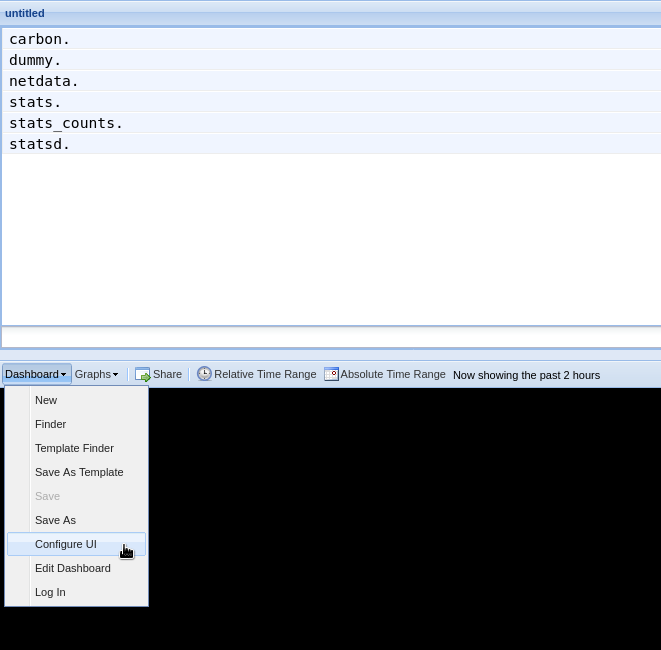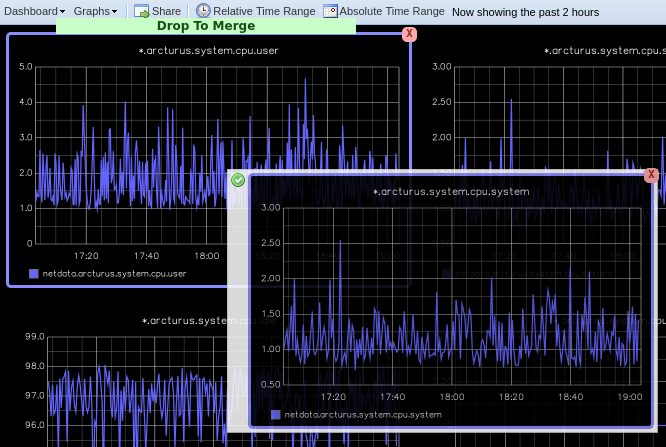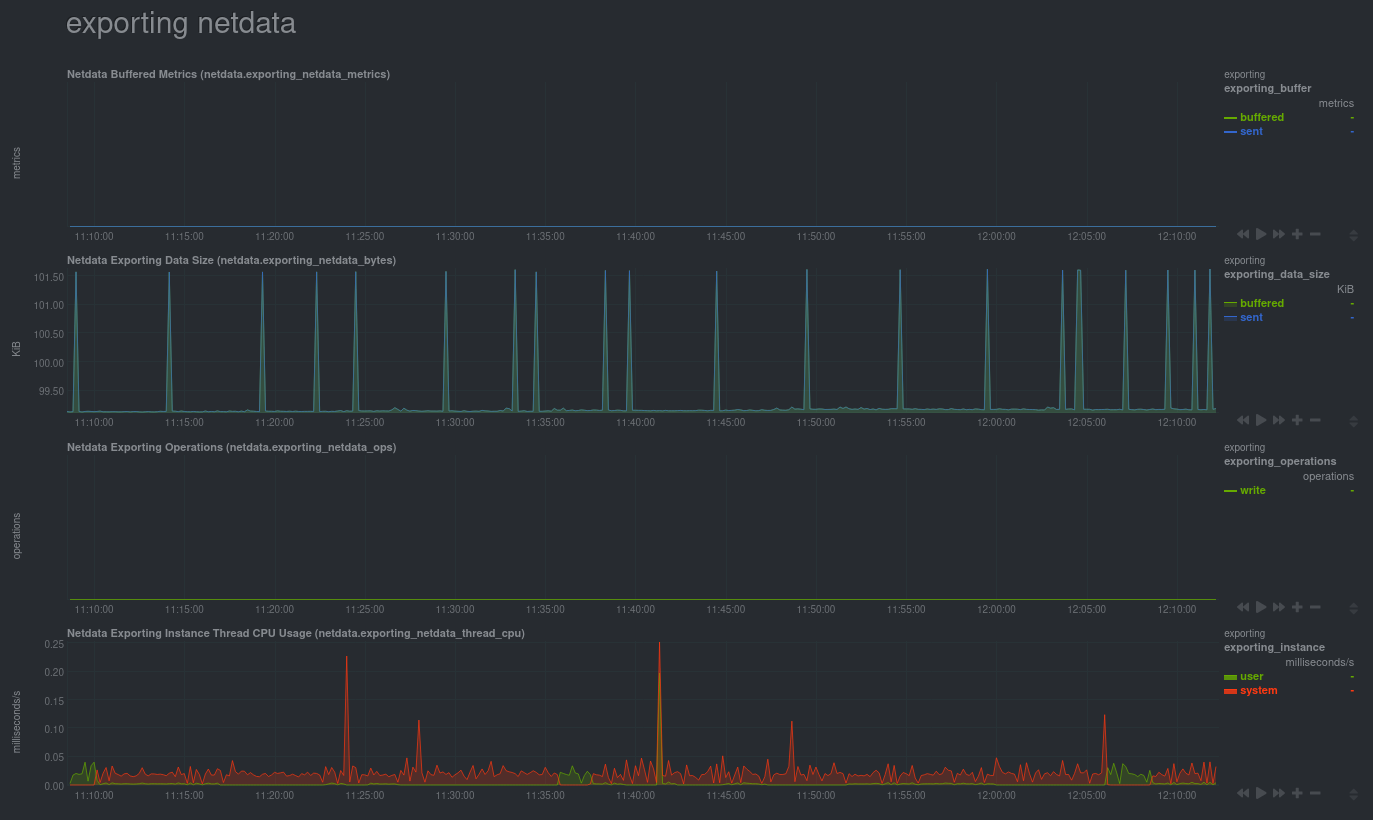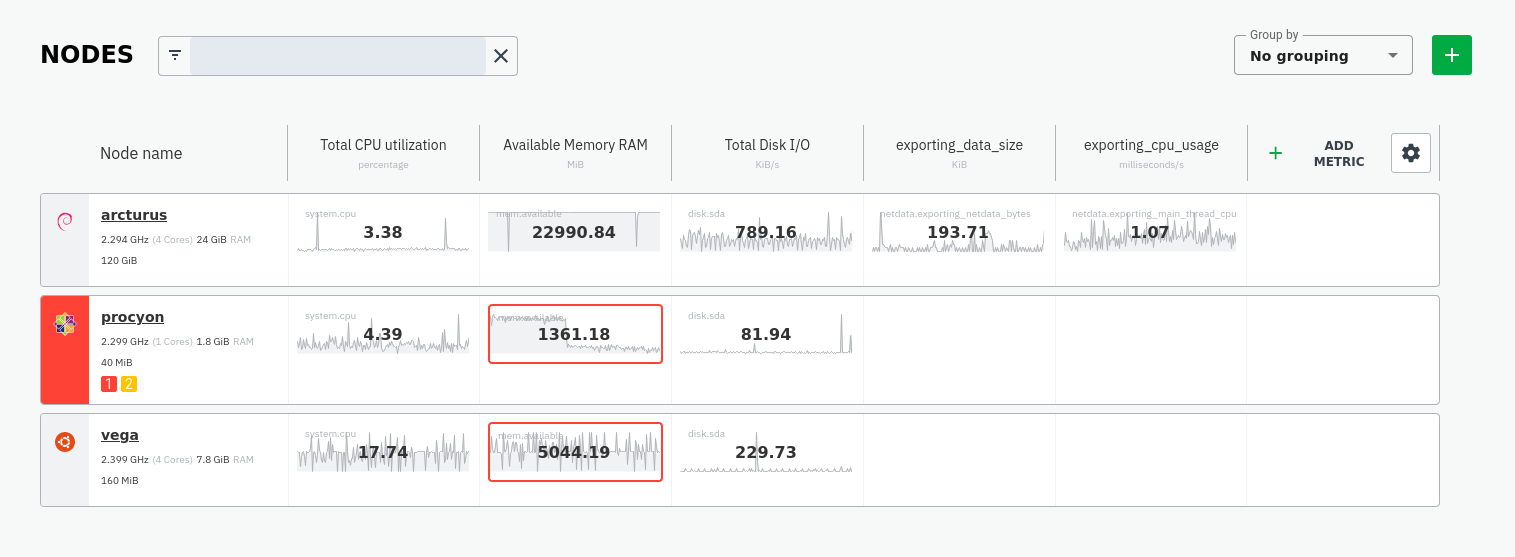diff options
Diffstat (limited to 'exporting/graphite/README.md')
| l---------[-rw-r--r--] | exporting/graphite/README.md | 129 |
1 files changed, 1 insertions, 128 deletions
diff --git a/exporting/graphite/README.md b/exporting/graphite/README.md index 2ef436cf5..15f360d17 100644..120000 --- a/exporting/graphite/README.md +++ b/exporting/graphite/README.md @@ -1,128 +1 @@ -# Export metrics to Graphite providers - -You can use the Graphite connector for -the [exporting engine](https://github.com/netdata/netdata/blob/master/exporting/README.md) to archive your agent's -metrics to Graphite providers for long-term storage, further analysis, or correlation with data from other sources. - -## Prerequisites - -You have already [installed Netdata](https://github.com/netdata/netdata/edit/master/packaging/installer/README.md) and -Graphite. - -## Configuration - -Begin by using `edit-config` to open the `exporting.conf` file. - -```bash -cd /etc/netdata # Replace this path with your Netdata config directory -sudo ./edit-config exporting.conf -``` - -Enable the exporting engine by setting `enabled` to `yes` in the `[exporting:global]` section. - -```conf -[exporting:global] - enabled = yes -``` - -Next, configure the connector. Find the `[graphite:my_graphite_instance]` example section and uncomment the line. -Set the `destination` setting to `localhost:2003`. By default, the Docker image for Graphite listens on port `2003` for -incoming metrics. If you installed Graphite a different way, you may need to change the port accordingly. - -```conf -[graphite:netdata] - enabled = yes - destination = localhost:2003 - ... -``` - -Add `:http` or `:https` modifiers to the connector type if you need to use other than a plaintext protocol. For -example: `graphite:http:my_graphite_instance`, -`graphite:https:my_graphite_instance`. You can set basic HTTP authentication credentials using - -```conf - username = my_username - password = my_password -``` - -The final result for a remote, secured host should be the following: - -```conf -[graphite:https:netdata] - enabled = yes - username = my_username - password = my_password - destination = remote_host_url:2003 - # data source = average - # prefix = netdata - # hostname = my_hostname - # update every = 10 - # buffer on failures = 10 - # timeout ms = 20000 - # send names instead of ids = yes - # send charts matching = * - # send hosts matching = localhost * -``` - -We'll not worry about the [rest of the settings](https://github.com/netdata/netdata/blob/master/exporting/README.md#options) - for now. Restart the Agent using `sudo systemctl restart netdata`, or the -[appropriate method](https://github.com/netdata/netdata/blob/master/docs/configure/start-stop-restart.md) for your -system, to spin up the exporting engine. - -## See and organize Netdata metrics in Graphite - -Head back to the Graphite interface again, then click on the **Dashboard** link to get started with Netdata's exported -metrics. You can also navigate directly to `http://NODE/dashboard`. - -Let's switch the interface to help you understand which metrics Netdata is exporting to Graphite. Click on **Dashboard** -and **Configure UI**, then choose the **Tree** option. Refresh your browser to change the UI. - - - -You should now see a tree of available contexts, including one that matches the hostname of the Agent exporting metrics. -In this example, the Agent's hostname is `arcturus`. - -Let's add some system CPU charts so you can monitor the long-term health of your system. Click through the tree to find -**hostname → system → cpu** metrics, then click on the **user** context. A chart with metrics from that context appears -in the dashboard. Add a few other system CPU charts to flesh things out. - -Next, let's combine one or two of these charts. Click and drag one chart onto the other, and wait until the green **Drop -to merge** dialog appears. Release to merge the charts. - - - -Finally, save your dashboard. Click **Dashboard**, then **Save As**, then choose a name. Your dashboard is now saved. - -Of course, this is just the beginning of the customization you can do with Graphite. You can change the time range, -share your dashboard with others, or use the composer to customize the size and appearance of specific charts. Learn -more about adding, modifying, and combining graphs in -the [Graphite docs](https://graphite.readthedocs.io/en/latest/dashboard.html). - -## Monitor the exporting engine - -As soon as the exporting engine begins, Netdata begins reporting metrics about the system's health and performance. - - - -You can use these charts to verify that Netdata is properly exporting metrics to Graphite. You can even add these -exporting charts to your Graphite dashboard! - -### Add exporting charts to Netdata Cloud - -You can also show these exporting engine metrics on Netdata Cloud. If you don't have an account already, -go [sign in](https://app.netdata.cloud) and get started for free. - -Add more metrics to a War Room's Nodes tab by clicking on the **Add metric** button, then typing `exporting` into the -context field. Choose the exporting contexts you want to add, then click **Add**. You'll see these charts alongside any -others you've customized in Netdata Cloud. - - - -## What's next - -What you do with your exported metrics is entirely up to you, but as you might have seen in the Graphite connector -configuration block, there are many other ways to tweak and customize which metrics you export to Graphite and how -often. - -For full details about each configuration option and what it does, see -the [exporting reference guide](https://github.com/netdata/netdata/blob/master/exporting/README.md). +integrations/graphite.md
\ No newline at end of file |
